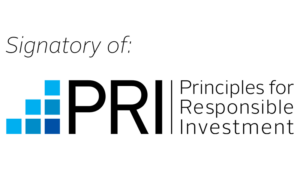Demonstrating its commitment to responsible investment practices, NILGOSC has been a signatory to the United Nations-supported PRI, since 2007. Established just the year before, the PRI is an international network of investors working together to implement six aspirational ESG Principles. It provides a forum for NILGOSC to collaborate with other like-minded investors on engagement initiatives; and, in order to remain a signatory, NILGOSC reports on its implementation of the PRI’s principles, submitting the responses for assessment.
Reporting has historically been mandatory for all signatories, but in 2024, investor signatories who had reported the prior year and met the minimum requirements were given the option to avail of a ‘grace period’ and choose not to complete the reporting framework. NILGOSC’s commitment to transparency meant that the decision was made to continue to report voluntarily in 2024, the results of which have been shared online today.
The reporting framework assesses: each organisation’s overarching approach to responsible investment; the integration of responsible investment in manager selection, appointment and monitoring; and active ownership within each asset class, including engagement and proxy voting. Assessments are awarded scores based on a scale of 1-5 stars; with 1 star being the lowest score and 5 stars being the highest.
NILGOSC’s assessment report for the year ended 31 March 2024 is available to review on the NILGOSC website, demonstrating positive results for the year. NILGOSC was pleased to have performed above the median of signatory scores in the majority of the areas assessed: receiving a 5-star rating for the ‘Policy Governance and Strategy’ module and 4-stars for the ‘Confidence Building Measures’ module. For the six sub-categories assessed as part of the ‘Manager Selection, Appointment, and Monitoring’ module, NILGOSC received five 4-star ratings and one 3-star rating. The 3-star rating in the ‘Infrastructure’ sub-category was the only area assessed which performed below the median.
Detail behind the scoring and assessment methodology can be found on the PRI’s website. Furthermore, NILGOSC’s public transparency report is available to download on the PRI’s database.



